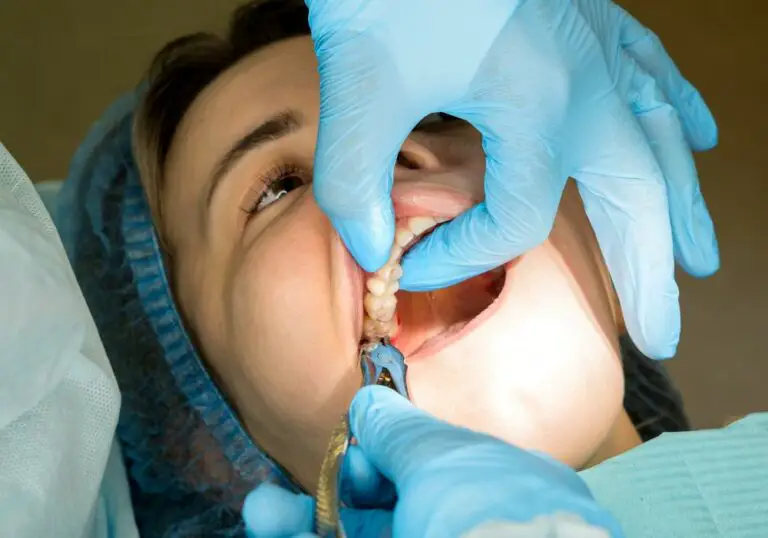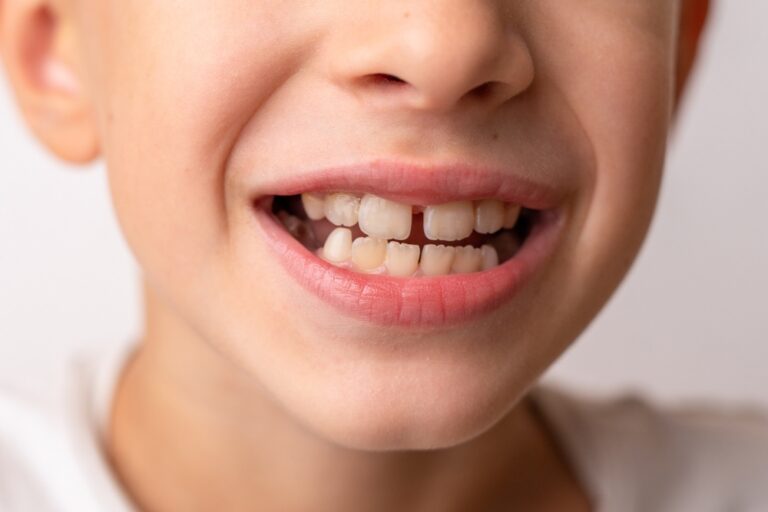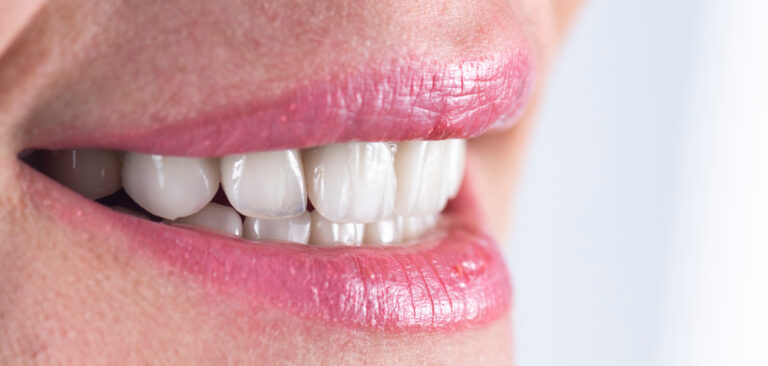Do your teeth absorb calcium? This is a common question among people who are concerned about their dental health. Calcium is an essential nutrient that is vital for the development and maintenance of strong teeth and bones. While many people associate calcium with bone health, it’s important to understand how it affects your teeth as well.
Your teeth are made up of several layers, including enamel, dentin, and pulp. Enamel is the outermost layer of your teeth and is the hardest substance in your body. It is primarily composed of calcium and phosphate minerals, which give it its strength. Dentin, the layer beneath enamel, also contains calcium and phosphate, but in lower concentrations. The pulp, which is the innermost layer of your teeth, contains nerves and blood vessels but doesn’t contain calcium. Understanding how calcium is absorbed and utilized by your teeth is crucial for maintaining good oral health.
Understanding Calcium and Teeth
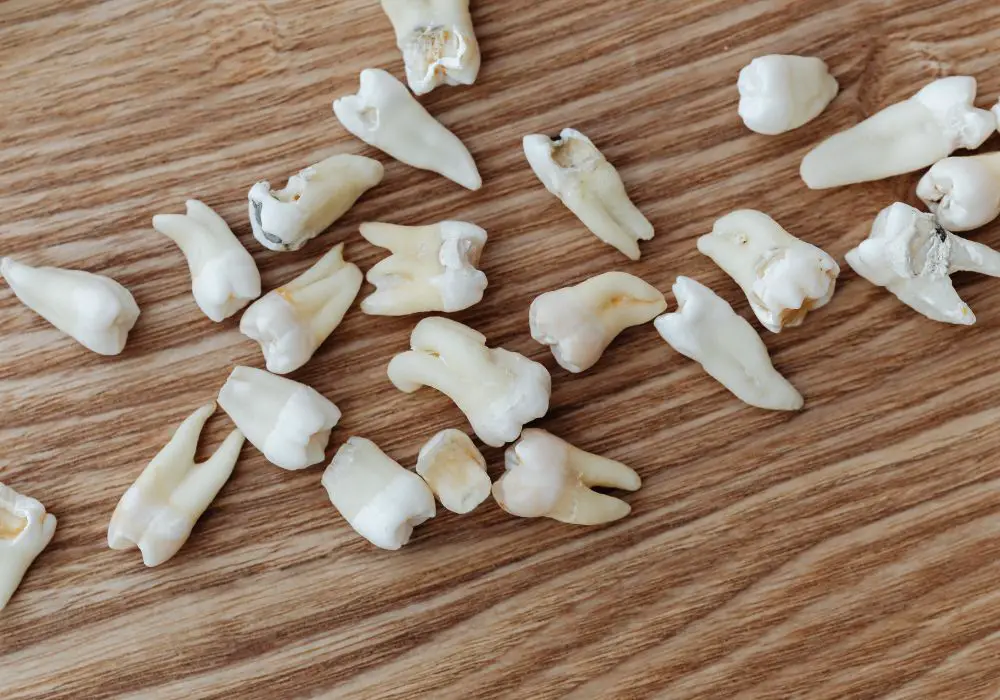
Calcium is a mineral that is essential for the growth and maintenance of healthy bones and teeth. In fact, about 99% of the calcium in your body is stored in your bones and teeth. Calcium is necessary for the formation of strong teeth and helps to maintain their structure and strength throughout your life.
Your teeth are made up of different layers, including the enamel, dentin, and pulp. Enamel is the outermost layer of your teeth and is the hardest substance in your body. It protects your teeth from damage and decay. Dentin is the layer underneath the enamel and is softer than enamel. The pulp is the innermost layer of your teeth and contains nerves and blood vessels.
Calcium plays a crucial role in the formation and maintenance of your teeth. It helps to strengthen the enamel and dentin, making them more resistant to decay and damage. Calcium also plays a role in the development of your teeth during childhood and adolescence.
A calcium deficiency can have adverse effects on your dental health. It can lead to weakened teeth and an increased risk of tooth decay and gum disease. If you are not getting enough calcium in your diet, your body may begin to take calcium from your bones and teeth, which can weaken them over time.
To ensure that you are getting enough calcium to support your dental health, it is important to eat a balanced diet that includes calcium-rich foods such as milk, cheese, yogurt, leafy greens, and fortified cereals. You may also want to consider taking a calcium supplement if you are not getting enough calcium from your diet.
In summary, calcium is essential for the growth and maintenance of healthy teeth. It helps to strengthen the enamel and dentin, making them more resistant to decay and damage. To ensure that you are getting enough calcium to support your dental health, eat a balanced diet that includes calcium-rich foods and consider taking a calcium supplement if necessary.
How Teeth Absorb Calcium
Your teeth are constantly undergoing a process called remineralization, where minerals like calcium and phosphate are deposited back into the tooth enamel to replenish any lost minerals. Calcium is essential for strong teeth and bones, and your body needs it for various functions like muscle contraction, blood clotting, and nerve function.
When you consume calcium-rich foods like milk, cheese, and leafy greens, your body absorbs the calcium in your small intestine and distributes it throughout your body. However, not all of the calcium you consume makes it to your teeth.
Your saliva also plays a role in the absorption of calcium into your teeth. Saliva contains calcium and phosphate ions that can help remineralize your teeth. When you eat, the bacteria in your mouth break down the carbohydrates in your food and produce acid as a byproduct. This acid can erode your tooth enamel and leach out calcium and phosphate ions.
However, your saliva can neutralize this acid and help remineralize your teeth. The calcium and phosphate ions in your saliva can bind to the weakened areas of your tooth enamel and deposit minerals back into your teeth.
In addition to consuming calcium-rich foods and maintaining good oral hygiene, you can also help your teeth absorb calcium by drinking fluoridated water or using fluoride toothpaste. Fluoride can strengthen your tooth enamel and make it more resistant to acid erosion.
Overall, your teeth do absorb calcium through the process of remineralization, and you can help maintain strong, healthy teeth by consuming calcium-rich foods, practicing good oral hygiene, and using fluoride products.
Role of Calcium in Tooth Development
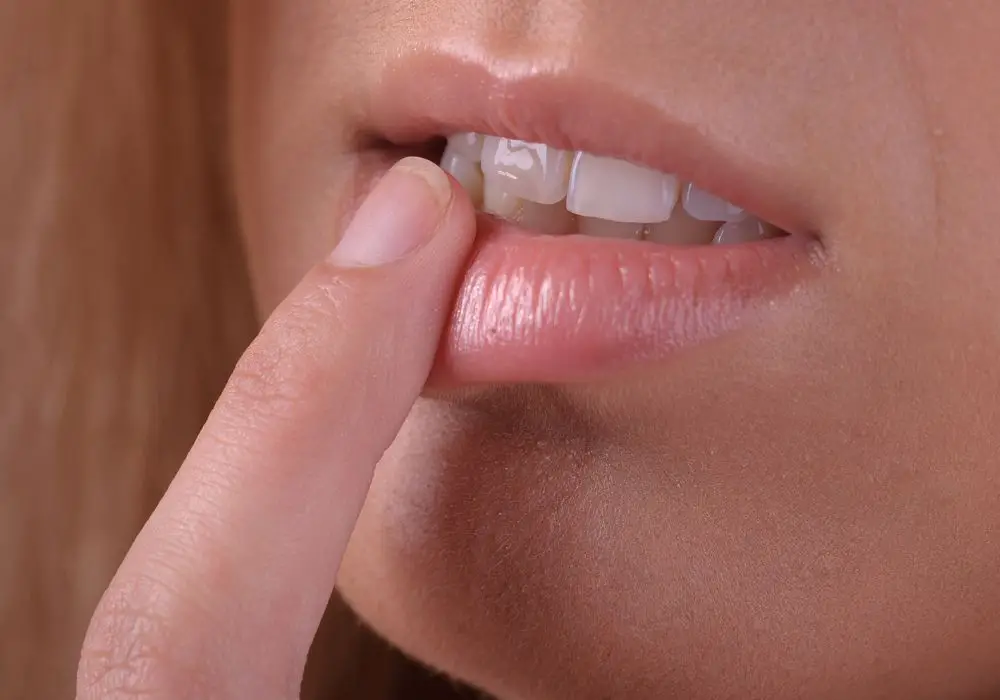
Calcium is a mineral that plays a crucial role in the development and maintenance of healthy teeth and bones. It is an essential nutrient that is required for the formation of strong, healthy teeth.
During tooth development, calcium is incorporated into the structure of the teeth, including the enamel, cementum, and dentin. Enamel is the hard, outer layer of the tooth, and it is the hardest substance in the human body. Cementum is a layer of hard, mineralized tissue that covers the root of the tooth. Dentin is a layer of hard, mineralized tissue that lies beneath the enamel and cementum and makes up the bulk of the tooth.
Calcium helps to strengthen the enamel, making it more resistant to decay and erosion. It also helps to keep the dentin and cementum strong and healthy. Without enough calcium, the teeth can become weak and brittle, which can lead to a range of dental problems, including cavities, tooth decay, and gum disease.
In addition to its role in tooth development, calcium also plays a key role in the maintenance of healthy teeth and gums. It helps to keep the jawbone strong and healthy, which is important for supporting the teeth. It also helps to maintain the pH balance in the mouth, which can help to prevent the growth of harmful bacteria that can cause tooth decay and gum disease.
To ensure that you are getting enough calcium for healthy teeth, it is important to eat a diet that is rich in calcium-rich foods, such as dairy products, leafy greens, and fortified cereals. You can also take calcium supplements if you are not getting enough calcium from your diet. However, it is important to talk to your dentist or doctor before taking any supplements, as taking too much calcium can be harmful to your health.
Importance of Adequate Calcium Intake
Having adequate calcium intake is crucial for maintaining strong and healthy teeth. Calcium is the most abundant mineral in the human body, with 99% of it stored in bones and teeth. The remaining 1% is essential for other body functions such as nerve transmission, muscle function, and blood clotting.
Calcium is essential for the formation and maintenance of strong bones and teeth. It helps to build and maintain the structure of teeth, making them less susceptible to decay and damage. When there is a lack of calcium intake, the body will take calcium from the bones and teeth, leading to weakened bones and teeth.
Inadequate calcium intake can lead to a range of dental problems, including tooth decay, gum disease, and tooth loss. It can also lead to weakened bones, which can increase the risk of fractures and osteoporosis.
The recommended daily calcium intake varies by age and gender. According to the Mayo Clinic, adults aged 19-50 should aim for 1,000 milligrams of calcium per day, while those aged 51 and older should aim for 1,200 milligrams. Children and teenagers also need adequate calcium intake to support healthy growth and development.
There are many good sources of calcium in the diet, including dairy products, leafy green vegetables, nuts and seeds, and fortified foods such as orange juice and cereals. If you are unable to get enough calcium from your diet, supplements may be recommended. However, it is always best to get your nutrients from whole foods whenever possible.
In summary, having adequate calcium intake is crucial for maintaining strong and healthy teeth. It is important to consume calcium-rich foods and supplements if necessary to support good oral and overall health.
Sources of Calcium for Teeth
Your teeth need calcium to stay strong and healthy. Calcium is one of the essential minerals that your body needs to maintain healthy teeth and bones. When you don’t consume enough calcium, your body will start to take calcium from your bones and teeth, which can lead to dental problems. Here are some sources of calcium that you can include in your diet to keep your teeth healthy:
Dairy Products
Dairy products are an excellent source of calcium. Milk, cheese, and yogurt are all rich in calcium and can help keep your teeth strong and healthy. If you are lactose intolerant, you can try lactose-free milk or dairy-free alternatives like almond milk or soy milk.
Leafy Green Vegetables
Leafy green vegetables like kale, spinach, and broccoli are also excellent sources of calcium. These vegetables are not only good for your overall health, but they can also help keep your teeth healthy.
Nuts and Seeds
Nuts and seeds like almonds, sesame seeds, and chia seeds are also good sources of calcium. You can add these to your salads, smoothies, or eat them as a snack.
Fish
Fish like salmon and sardines are an excellent source of calcium and vitamin D. Vitamin D is essential for the absorption of calcium in your body.
Calcium Supplements
If you are not getting enough calcium from your diet, you can consider taking calcium supplements. However, it is always best to consult your dentist or doctor before taking any supplements.
Including these sources of calcium in your diet can help keep your teeth strong and healthy. Remember to practice good oral hygiene, such as brushing and flossing regularly, and visiting your dentist for regular checkups and cleanings.
Factors Affecting Calcium Absorption in Teeth
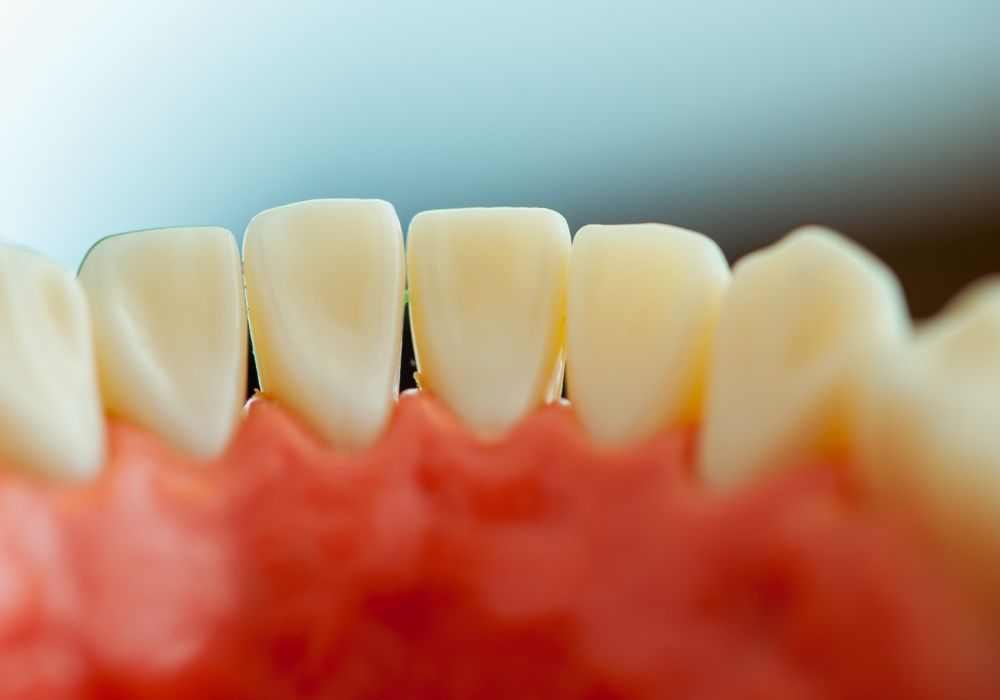
Calcium is an essential mineral for the development, growth, and maintenance of healthy teeth and bones. Your teeth absorb calcium to stay strong and healthy, but there are several factors that can affect the absorption of calcium in your teeth.
Age
As you age, your body’s ability to absorb calcium decreases. This means that older adults may require more calcium in their diet to maintain healthy teeth and bones. According to the Office of Dietary Supplements, adults over the age of 50 need 1,200 mg of calcium per day to maintain good health.
Vitamin D
Vitamin D is essential for the absorption of calcium in your body, including your teeth. Without enough vitamin D, your body may not be able to absorb calcium properly, which can lead to weak and brittle teeth. You can get vitamin D from sunlight, certain foods, or supplements.
Calcium Deficiency
If you have a calcium deficiency, your body may not be able to absorb enough calcium to keep your teeth and bones healthy. Calcium deficiency can lead to weak and brittle teeth, as well as other health problems. To prevent calcium deficiency, it’s important to eat a diet rich in calcium or take calcium supplements as recommended by your healthcare provider.
Medications
Certain medications can affect the absorption of calcium in your body, including your teeth. For example, some antacids and antibiotics can interfere with calcium absorption. If you’re taking any medications, talk to your healthcare provider about how they may affect your calcium absorption and what you can do to maintain healthy teeth and bones.
Other Factors
Other factors that can affect calcium absorption in your teeth include genetics, hormonal imbalances, and certain medical conditions. If you’re concerned about your calcium absorption or the health of your teeth, talk to your healthcare provider for personalized advice and recommendations.
Preventing Tooth Decay with Calcium
Calcium is an essential nutrient that plays a vital role in maintaining healthy teeth and bones. It helps strengthen tooth enamel, which is the hard, outer layer of your teeth that protects against decay and damage. Here are some ways to prevent tooth decay with calcium:
1. Incorporate calcium-rich foods into your diet
Eating foods that are high in calcium can help strengthen your teeth and prevent decay. Some good sources of calcium include:
- Milk and dairy products
- Leafy green vegetables, such as kale and spinach
- Tofu
- Almonds
- Salmon and other fatty fish
2. Consider calcium supplements
If you’re not getting enough calcium from your diet, you may want to consider taking a calcium supplement. It’s important to talk to your doctor before starting any new supplement regimen, as too much calcium can have negative health effects.
3. Use fluoride toothpaste
Fluoride is a mineral that helps strengthen tooth enamel and prevent decay. Using a toothpaste that contains fluoride can help protect your teeth from damage.
4. Limit sugary and acidic foods
Sugary and acidic foods can erode tooth enamel and contribute to decay. Limit your intake of these foods and brush your teeth after eating them to help protect your teeth.
5. Practice good oral hygiene
Brushing and flossing regularly can help remove plaque and bacteria from your teeth, which can contribute to decay. Make sure to brush your teeth twice a day and floss at least once a day to maintain good oral hygiene.
By incorporating calcium-rich foods into your diet, considering calcium supplements, using fluoride toothpaste, limiting sugary and acidic foods, and practicing good oral hygiene, you can help prevent tooth decay and maintain healthy teeth.
Impact of Calcium Deficiency on Teeth
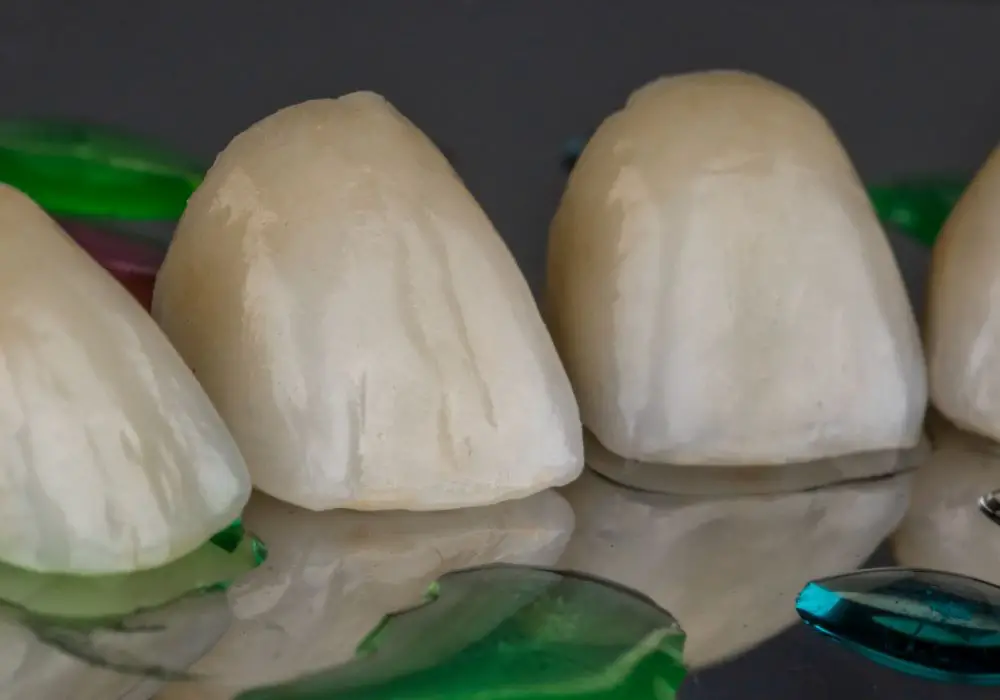
Your teeth are made up of a combination of different minerals, including calcium. Calcium is essential for the development and maintenance of strong teeth and bones. When your body is deficient in calcium, it can have a significant impact on your oral health.
One of the most common effects of calcium deficiency on teeth is the development of tooth decay. Without enough calcium, your teeth become weaker and more susceptible to decay. This can lead to cavities, which can cause pain and discomfort and may require dental treatment to fix.
In addition to tooth decay, calcium deficiency can also lead to other oral health problems. For example, it can cause your teeth to become brittle and more likely to break or chip. It can also lead to gum disease, which can cause your gums to become inflamed and bleed.
If you have a long-term calcium deficiency, it can even lead to tooth loss. This is because your body will start to use the calcium from your teeth to maintain other bodily functions. Over time, this can cause your teeth to weaken and eventually fall out.
To prevent calcium deficiency from impacting your teeth, it’s important to make sure you’re getting enough calcium in your diet. Good sources of calcium include dairy products, leafy greens, and fortified foods like cereal and orange juice. You can also take calcium supplements if you’re not getting enough from your diet.
In addition to getting enough calcium, it’s also important to practice good oral hygiene habits. This includes brushing your teeth twice a day, flossing regularly, and visiting your dentist for regular checkups and cleanings. By taking care of your teeth and getting enough calcium, you can help prevent the negative effects of calcium deficiency on your oral health.
Frequently Asked Questions
Can teeth absorb calcium from milk?
Yes, teeth can absorb calcium from milk. Milk is a good source of calcium and other nutrients that are essential for healthy teeth and bones. Calcium from milk can help strengthen tooth enamel and prevent tooth decay.
Is calcium stored in teeth?
Yes, calcium is stored in teeth. Teeth are made up of several layers, including the outer layer called enamel, which is composed of calcium and other minerals. Calcium is also present in the dentin and pulp of teeth.
How does calcium deficiency affect teeth?
Calcium deficiency can affect teeth in several ways. It can weaken tooth enamel and increase the risk of tooth decay. It can also cause teeth to become brittle and more prone to cracking or breaking. In severe cases, calcium deficiency can lead to tooth loss.
What are the effects of calcium deficiency on teeth?
The effects of calcium deficiency on teeth include weakened enamel, increased risk of tooth decay, brittle teeth, and tooth loss. Calcium is essential for maintaining strong teeth and bones, and a deficiency can have serious consequences for oral health.
Can calcium deficiency cause tooth discoloration?
Yes, calcium deficiency can cause tooth discoloration. When teeth do not receive enough calcium, they may become discolored or develop white spots. This is because calcium is necessary for the formation of healthy tooth enamel.
Is excessive calcium intake harmful to teeth?
Excessive calcium intake is generally not harmful to teeth. However, consuming too much calcium can lead to other health problems, such as kidney stones. It is important to consume calcium in moderation and to follow recommended daily intake guidelines.

